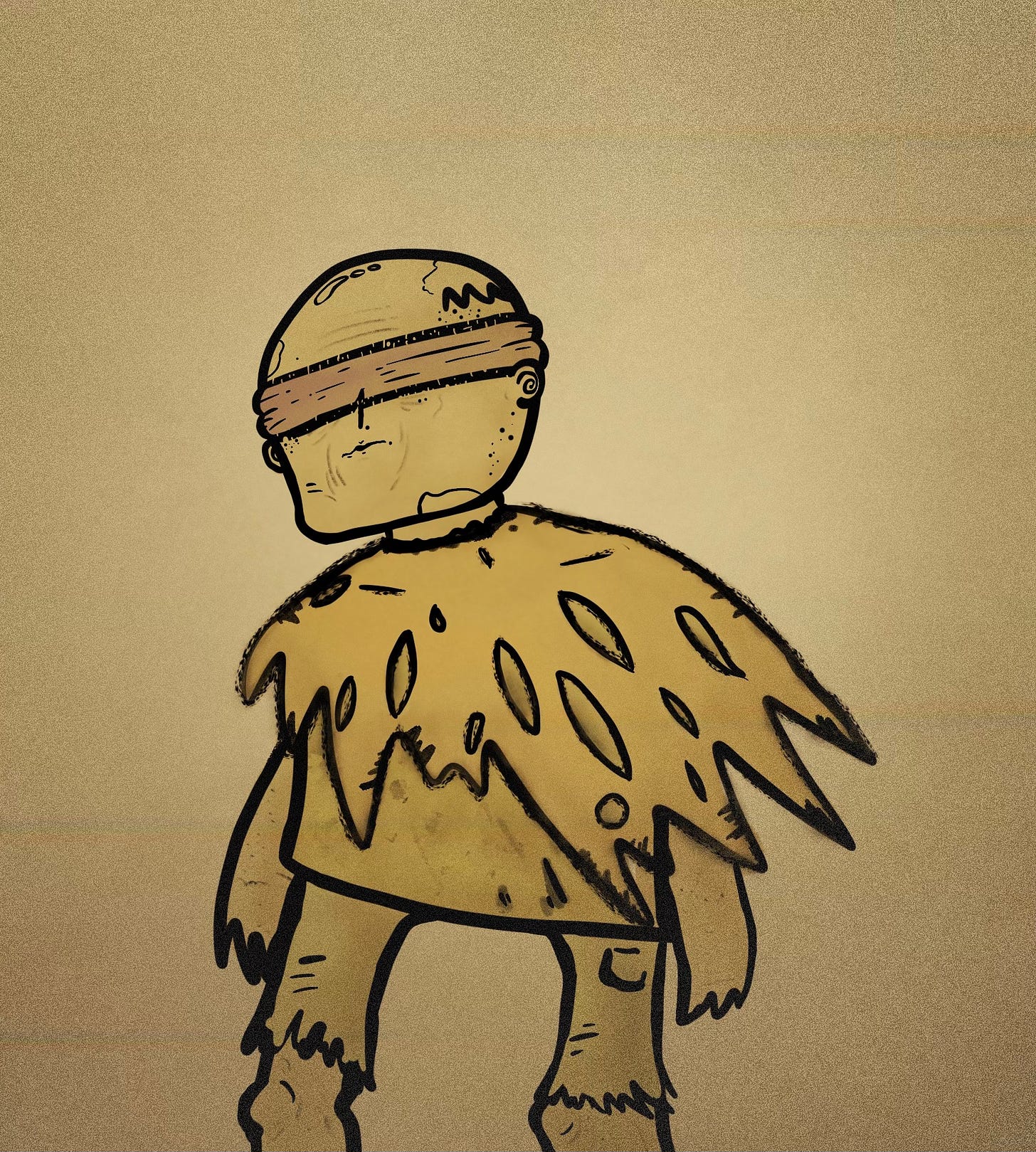King Lear as Tragedy
...
In grand ceremony King Lear parcels out his kingdom, intending afterwards to retire, and “unburdened crawl toward death.” But who shall get what? For this he runs a royal bonus round, and the contestants, his daughters, must answer, “Which of you shall we say doth love us most?” After insincere speeches from Goneril and Regan, Cordelia, his favorite, won’t play—“I love your Majesty according to my bond, no more nor less.” Furious, Lear disowns her: “I disclaim all my parental care...and as a stranger to my heart and me hold thee from this forever.” Soon the elder sisters, newly-empowered, strip Lear of his armed attendants and his dignity, in a delicious Shakespearean phrase:
Be then desired By her that else will take the thing she begs, A little to diquantity your train,
and Lear is left out in a storm, helpless, in the company of fools and madness. In this lowered state he is humanized. Put off as we may earlier have been, now to him our sympathy attaches. When finally he is reunited with Cordelia, a political storm has replaced the natural one, and France and England go to war. All the bad guys die, including Goneril and Regan; but so do Lear and Cordelia. For some, it is Shakespeare’s greatest tragedy.
Others have doubts. Horrible things happen to undeserving people, yes. But capital-T Tragedy requires more: a great hero whose flaw is his downfall; or, in Romantic thinking, gigantic forces that oppose and then destroy each other. Are either of those in King Lear? Groucho Marx skewered the thought, while talking to, of all people, T. S. Eliot:
I said the king was an incredibly foolish old man, which God knows he was...I pointed out that King Lear’s opening speech was the height of idiocy. Imagine (I said) a father asking his three children: Which of you kids loves me the most?
So yes, in asking his “foolish, idiotic” question Lear exhibits a flaw, and tragedy (lowercase) follows, but the suffering is not inflicted on a great hero, and the play is nothing but melodrama. Paul Cantor writes,
In the view of most critics, Lear is basically a pathetic old man, vain and foolish, rash in his judgment and incapable of controlling his emotions—and he is all these things from the very beginning of the play.
But Cantor is not most critics, and takes a different view. If Lear acquires humanity and wisdom in the end, something else of equal value is lost. Lear has become fit for love, but is no longer fit to rule. Successful leadership—projecting power and authority, and inspiring loyalty and fear—requires, Cantor claims, not a little ruthless arrogance. Lear’s errors stem from these traits, not (or not merely) from foolishness, or stupidity:
At the beginning of the play Lear is the captive of many illusions about himself and his world, but his very overestimation of his own powers is what gives him the aura of authority he needs to command his subjects. The Lear of act 4, scene 6 has learned a great deal about his own limitations, but the result is that he ... has lost all faith in the ability of political action to improve the human condition, or even to control its worst excesses of passion. The Lear of act 4, scene 7 is simply indifferent to politics; having achieved a spiritual communion with Cordelia ... he no longer has any interest in public life. Failing to integrate his antithetical visions of humanity ... Lear is unable to grasp the fundamental truth that the political authority he despises and rejects in act 4, scene 6 would be necessary to protect the fragile spirituality he comes to cherish in act 4, scene 7.
Lear is tragedy, not because horrible things happen out of proportion to any sin causing them, but because it exposes the “deep and abiding tension between the preconditions of power and the preconditions of wisdom.”
Maybe. Cantor is right that, however ill-advised Lear’s acts in scene 1, in doing them he projects authority; he does not seem small, or foolish. But I’m still a little Josh Baskin about the whole thing. In another essay Northrop Frye reminds us that Lear is Shakespeare’s retelling of an established English myth, one set in the distant, pre-Christian past. This matters, first, because the mythicness of the story is enough to enlarges Lear’s stature to proportions fit for tragedy: to the original audience, Lear was a known figure, and grand as King Arthur. More importantly, it matters because
tragedy raises some disturbing questions about what kind of power is in charge of the universe. Christianity has prompt and confident answers, but the more emotionally convincing the tragedy, the more we may feel that the answers sometimes are a bit too pat.
With Christian answers unavailable, the characters have only the Duke of Gloucester’s thought, expressed while wandering the heath, having been blinded by his enemies before our eyes:
As flies to wanton boys are we to th’ gods; They kill us for their sport.
For even a great Tragedy, that theme may be enough.1
See also: On Hamlet, and many essays at The Common Reader, including on Henry IV and on leadership in Shakespeare.
Cantor and Frye essays in Harold Bloom’s Modern Critical Interpretations—King Lear.



If Lear is in part a traditional Tragedy, it's the Tragedy of Cordelia - her refusal to dissemble is a genuine tragic flaw, and she makes meaningful decisions, repeatedly and decisively, while Lear is complaining and wandering about.
The play we're watching is happening at the same time as a proper Tragedy, but we only get to see glimpses of that other play and its heroine.
Discovered Paul Cantor in one of his lecture series on YouTube, last year. Learned a lot about Shakespeare from those - a great teacher with a distinct POV.